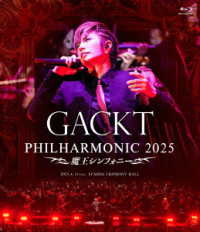- ホーム
- > 洋書
- > 英文書
- > Literary Criticism
Full Description
The contemporary philosopher Jacques Rancière has become over the last two decades one of the most influential voices in philosophy, political theory, and literary, art historical, and film criticism. His work reexamines the divisions that have defined our understanding of modernity, such as art and politics, representation and abstraction, and literature and philosophy. Working across these divisions, he engages the historical roots of modernism at the end of the eighteenth century, uncovering forgotten texts in the archive that trouble our notions of intellectual history. The contributors to Understanding Rancière, Understanding Modernism engage with the multiplicity of Rancière's thought through close readings of his texts, through comparative readings with other philosophers, and through an engagement with modernist works of art and literature. The final section of the volume includes an extended glossary of the most important terms used by Rancière, which will be a valuable resource for experts and students alike.
Contents
Notes on Contributors
Series Preface
List of Abbreviations
Introduction
Patrick M. Bray, Ohio State University, USA
Part I - Conceptualizing Rancière
1. The Hatred of Democracy and "The Democratic Torrent": Rancière's Micropolitics
Emily Apter, New York University, USA
2. Rancière's Nineteenth Century: Equality and Recognition in Nights of Labor
Bettina Lerner, City College CUNY, USA
3. The Ignorant Schoolmaster: Intellectual Emancipation in Circular Form
Leon Sachs, University of Kentucky, USA
4. Literature as Rancièrian Film Fable
Margaret C. Flinn, Ohio State University, USA
5. The Emancipated Spectator and Modernism
Cary Hollinshead-Strick, American University of Paris, France
6. Mute Speech: The Silence of Literature in Rancière's Aesthetic Paradigm
Giuseppina Mecchia, University of Pittsburgh, USA
7. Le Fil Perdu: The Music of the Indistinct
David F. Bell, Duke University, USA
Part II - Rancière and Aesthetics
8. A Method of Equality: Rancière, Jokes, and their Relation to They Drive by Night
Tom Conley, Harvard University, USA
9. Feminist Art: Disrupting and Consolidating the Police Order
Tina Chanter, Kingston University London, UK
10. Rancière and Proust: Two Temptations
Suzanne Guerlac, University of California, Berkeley, USA
11. The Conception of the Will in Rancière's Aesthetic Regime of the Arts: Pathos and Reverie in Stendhal, Ibsen and Freud
Alison Ross, Monash University, Australia
12. Dreaming Bourdieu Away: Rancière and the Reinvented Habitus
Marina Van Zuylen, Bard College, USA
13. Rethinking the Aesthetics/Politics Nexus in Latin America
Silvia L. López, Carleton College, USA
Part III - Glossary of Key Terms
Distribution of the Sensible
Daniel Brant, University of Illinois at Urbana-Champaign
Fable
Audrey Évrard, Fordham University, USA
Intellectual Equality
Zakir Paul, University of Chicago, USA
Mute Speech
Alison James, University of Chicago, USA
Regimes of Art
Robert St. Clair, Dartmouth College, USA
Part IV - Interview with Jacques Rancière
'Understanding Modernism, Reconfiguring Disciplinarity,' interview with Rancière
translated by Patrick M. Bray, Ohio State University, USA
Index







